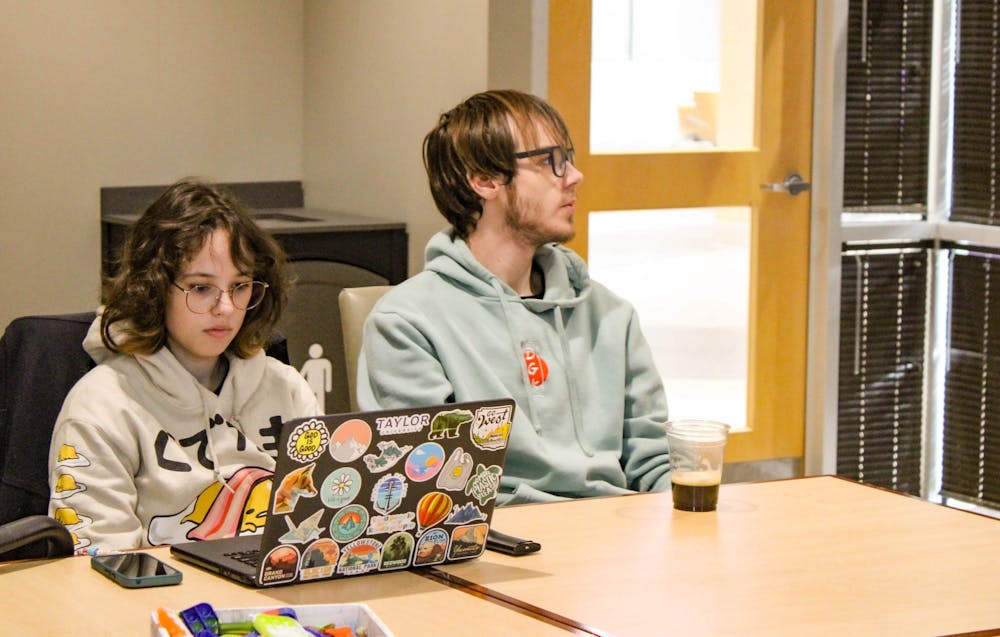The chapel office announced a new sensory-friendly chapel space where students can worship and engage in fellowship in a calmer environment than Rediger Auditorium.
Located in room Jacobsen 1 in the Larita Boren Campus Center, students are able to modify the sound and brightness in the room to fit their needs.
Greg Dyson, campus pastor, said students looking to make the chapel more accessible initiated the process of creating this space. After speaking with faculty in the Student and Academic Success office, a student reached out to Dyson communicating the need for a more accessible space.
This was something Dyson and his team had talked about in the past. During his time at Taylor, whenever he came late to chapel, he noticed that some people sat in the back, outside of the auditorium. He had a feeling then that the reason for this was not the lack of available seats.
The chapel team decided to support and encourage this project and collaborated with students to find a space that would work. They landed on Jacobsen 1 because they could make it darker by drawing the curtains. It already had a TV screen and they were able to make the chairs quieter. The team also provided fidget tools for students to use.
Some students de-stress during this time by using alternate doors that are not as crowded and overwhelming as the ones most students use to enter and exit the building.
Dyson said that they looked for a room in the Larita Boren Campus Center because that is where the auditorium is. He likes the idea of people coming to the building together for this time, even if that just means coming to study.
Dyson was encouraged that students spoke up for their needs and wants others to do the same.
“Our ability to accommodate is important for our student body,” Dyson said. “If somebody has a need, we’d like to try and care for and meet that need as best we can.”
Dyson expressed that as Taylor grows and chapel expands in future renovations, he is excited that the school will be able to create a chapel experience that holds “not only the student body, but student needs.”
Junior Ellianna Main is majoring in psychology with a minor in autism studies. She initially found the need for this space after conducting a survey and research project to find what non-academic accommodations would be helpful for students on the spectrum.
This space makes students more comfortable by taking away social stigma and any anxieties that people have regarding their headphones or other personal accommodations, Main said.
She said it is a safe space and a way for the community to be seen and worship together without the sensory experience.
Main and her husband currently run the sensory-friendly chapel livestream and hope to find someone to pass the role off to when their time at Taylor ends.
“I hope that it doesn’t stop with us and that it will continue as long as there’s a need,” Main said.
Senior Dane Nicholson attends the sensory-friendly chapel space.He said this new space is meant for people who want to experience chapel without the loudness or crowd of people.
Nicholson says having less people in the room makes the environment more comfortable for him. He likes that he can experience worship with more space next to him and does not feel pressure to stand and sing.
After successfully creating the space, Main advocates for people to ask for the things they need.
“If there's an issue that you experience as a student and if you think that it's something that other students also have an issue with, there are ways to change it and to create something new,” Main said. “Especially when it comes to chapel, Reverend Dyson was so incredibly understanding and so excited to get it started… As students we also have power on campus, and I want other students to be able to look at the sensory-friendly chapel and say, ‘Oh, maybe I can do the thing that I think would be helpful for campus.’”





